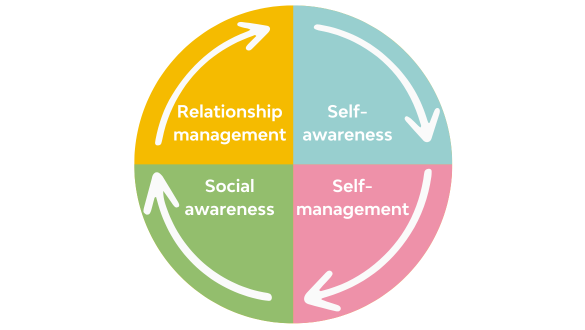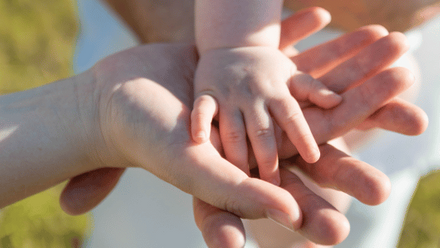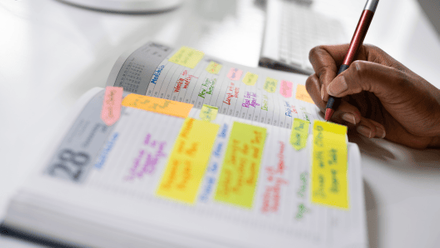What is emotional intelligence?
Emotional Intelligence is the capacity to recognize our own feelings and those of others, and to manage emotions effectively in ourselves and our relationships.
Goleman, 1995
Developing our emotional intelligence helps us manage our emotions to better:
- manage our relationships with children, staff and parents
- understand what others might be feeling
- inspire other people to feel good about themselves and their work.
There are four aspects to the emotional Intelligence model, developed by Daniel Goleman and Richard Boyatzis.

Being emotionally intelligent in a professional capacity means working in a different way than what we might be used to. It means thinking about our relationships with others rather than what needs to get crossed off our to-do list. By thinking more about people than production, we become more emotionally in tune with the environment around us, helping us to understand others and work collaboratively.
In order to think about others, though, we need to be confident in recognising our own emotions and how we manage them.
Self-awareness and social awareness refer to what we know about ourselves and others; self-management and relationship management are what we do with that information.
Self-awareness
What am I feeling now? Am I happy, upset, anxious…? To what extent am I aware of my emotions? How aware am I about how I react to a situation? What triggers emotions in me?
Self-management
Now that I know what I am feeling, what am I going to do about it? Am I going to act on my emotion? Or am I going to manage it?
Social awareness
What do I know about the other person? How aware am I about the people around me? Are they happy about what they are doing? Are they feeling motivated, frustrated, undermined?
Relationship management
Using my understanding of self and others, how can I manage my relationships for the best outcomes?
Developing your emotional intelligence
Emotional intelligence has nothing to do with how clever you are, nor is it the same as being ‘sensitive.’ Just like with any skill, some people are naturally more emotionally intelligent than others. But, regardless of your starting point, you can develop high emotional intelligence even if it was not your strength to begin with.
Understanding your starting point is always a good place to begin, so let’s think about how you feel now. How would you rate yourself currently on the following? (This is for your eyes only, so be honest with yourself)
- I can recognise and explain how I am feeling in all situations
- I recognise what other people are feeling, even if they don’t tell me
- I treat everyone as an individual and show that I care about them and their lives
- I stay calm even in the midst of crisis or chaos
- I know what triggers me and can manage any irritation without acting on it.
Highlight the statements that you indicated:
- I struggle with this
- I don't know how to do this
Identifying areas of improvement is the first step in making changes to your behaviours. However, our own perceptions and what others see of us are sometimes very different, and often we can be critical of ourselves. Is there a trusted friend you could ask to reflect on these statements with you in mind?
Extend your learning
Key takeaways
As you deepen your emotional understanding of yourself and others you will become more tuned into your own emotional state from moment to moment. Being able to recognise your own needs and the needs of others helps building strong relationships, and supports health and wellbeing.






